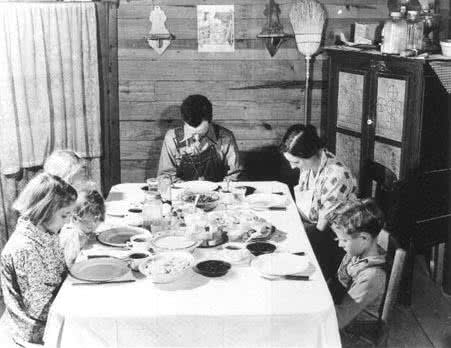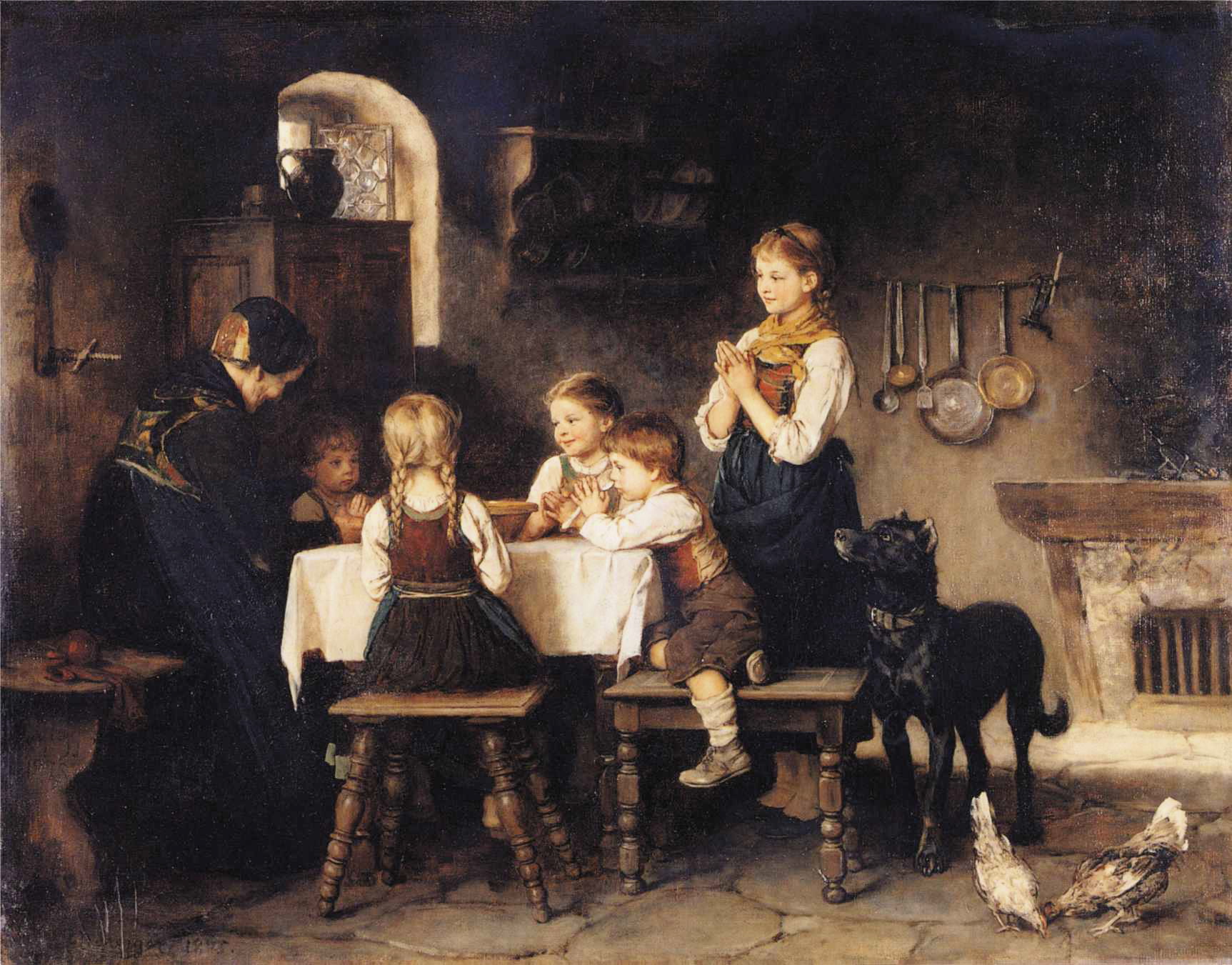Years ago, I told a seminarian not to confuse politics with religion. I was warning him of a pitfall that many priests fell into during the past sixty years--believing that politics can "save" people.
Liberation theology would be an extreme example of this idea that political actions trump doctrine, or traditional religious practice. Or thinking that prayer cannot change events, people, even history.
We are now in a pagan society and most likely, we shall most likely not be able change the slide into further paganism of the West.
While we do not have to dwell on the savage movement of Godlessness in our countries, we should not give up on praying for God to intervene.
We have to respond and follow the Mind of Christ, which is expressed in the Church, but we do not have to figure out ways to deal with arguments or discussion until these happen. Too many people are becoming obsessed with sin and are not obsessed with God.
Wrong focus....
Depression comes from concentrating on the negative. Joy comes from embracing suffering and becoming closer to Christ.
Confidence in God must transcend the horror of sin in the world. To doubt Divine Providence is actually an insult to God.
Believing in Divine Providence must not include a denial of suffering. Believing in Divine Providence is not a "pie in the sky" attitude.
A belief in Divine Providence does not ignore reality. A trust in Divine Providence demands a great humility.
Here is a list which is a holiness check list. Here is my St. Paul list of coming to understand that God is in control, not me.
Garrigou-Lagrange makes it clear that trusting in Divine Providence means that the secret, hidden meaning behind “hindrances, contradictions, reverses, disappointments, misfortunes, and failures” which may involve either the disorder in our own lives or in that of others, are all for a higher purpose in God’s perfect and permissive wills.
The Dominican refers to these as part of “providential schooling”.
Years ago, when something “bad” happened, I began to ask God this question, “What do you want me to learn from this, O Lord?”
Now, I frequently have the answer immediately. Something which exercises my patience, and if for my good, is allowed by God.
I made up this check list for those who have a tendency to only see the negative and who fall into complaining, which are clear signs of a political mind and not a disposition of trusting in Divine Providence.
1) If I am ill, do I complain at what is not being done, or am I patient and submissive?
2) If someone makes a snide or unkind comment, do I get angry or try to understand the other person’s upset? Do I realize I deserve the unkindnesses for my sins?
3) If a bank or billing company makes an error, do I patiently explain the mistake, or do I get angry and snippy? Do I realize that people are no longer trained to be efficient or careful? Do I feel for this lost generation, who have been cheated by inferior schooling?
4) If someone is late for a meeting, do I go with the flow and try to understand the situation? Do I really know that my time is not more important than theirs?
5) If someone is continually unkind to me, do I forgive immediately and constantly? Do I respond in love and not judgment, knowing God forgives me constantly?
6) Am I aware that a contradiction lies behind my responses and the seeming way to perfection? Do I see that my responses point to my predominant fault?
7) Do I use bad and stressful situations for opportunities for prayer? For example, I do not have a car, so when I wait for a bus or ride, I say the rosary.
8) Do I ask God to remove critical and judgmental language or even thoughts from my memory, understanding and ask specifically for purification of the mind? Do I judge myself, which is also sinful?
9) Do I let people make mistakes instead of being a control freak? Do I let go of things, events, people, in the daily course of my life? Do I respond in spontaneity and goodness?
10) Am I patient with others who have never experienced illness, poverty, degradation and cannot understand the way of purification? Do I pray for the right words to help them to understand?
This is my list. What is interesting in Garrigou-Lagrange on the duty of the moment is that he writes that grace is sometimes a destroyer. Yes, I have learned this. He notes, “…yet it its workings within us, it does not destroy, but perfects any good there is in nature, restoring and sublimating it. We may say of grace as was said of God: ‘It killeth and maketh alive’ (1 Kings 2:6)
I “grew up” on Pere de Caussade. My favorite book in graduate school was Abandonment to Divine Providence. I think I still have the original copy I bought years ago, about 1979, or so in an old, used book store.
God was guiding me even then, but I was not paying attention as I am now. I had so many things to do. I remember reading this book on a hot summer’s day at Notre Dame, the campus all green and quieter, as summer school had less students and less activity. The old, venerable book showed me that the daily routine of my life was sacred, every moment was sacred. The Present Moment is all we have, as de Caussade taught me. The past was gone and the future totally in the Hands of God.
Garrigou-Lagrange writes this, which is connected to de Caussade’s direction: “In the spiritual order more than anywhere else real knowledge can be acquired only by suffering and action. Though our Lord’s holy soul form the moment of His coming into the world enjoyed the beatific vision and an infused knowledge, yet He willed also to have an experiential knowledge which is acquired day by day and enables us to view things under that special aspect which contact with reality gives when they have been infallibly foreseen.”
Trusting in Divine Providence is the lesson of denial of self. For some of us, this is done directly by God. If I merely complain and murmur, I would miss the lessons. I would try to control the situation by looking for alternatives, even inconveniencing ones. That is not the lesson God wants me to learn through these things.
Garrigou-Lagrange writes, “This is the school of the Holy Ghost, in which His lessons have nothing academic about them, but are drawn from concrete things. And He varies them for each soul, since what is useful for one is not always so for another. …let us in all simplicity listen to what Providence has to say to each one of us personally in these concrete lessons it gives. We must not treat this doctrine in a purely material and mechanical way: it is a question of being supernaturally-minded in everything, in all simplicity and without disputings or foolish questionings.”
Yes, we must act and continue to work for change, work hard for the Kingdom of God on earth. But, we must underline all our actions with deep, reflective prayer.
Prayer creates holiness which will attract those who have fallen into paganism. "See how they love one another" needs to be our focus. And this state of love is only possible when we each have a relation with Christ, and let God be God in our lives. Trusting in Providence reveals or is a sign of our love for God, even in times of severe trial.
Sometimes, as St. Therese writes, love is not felt; there is “unfelt love”. De Caussade writes, “O unknown Love! …no one sees that Your inexhaustible activity is a source of new thoughts, of fresh sufferings, and further action…of new saints.”
Rest in the unfelt love. When one waits, love comes.
I have written somewhat on infused contemplation, also called passive contemplation. This is a high state for proficients. This is not the same, as I have repeated many, many times, as meditation or active contemplation.
Again, the prayer of simplicity is a prayer for active contemplation moving into infused or passive contemplation. Simplicity is simply looking at Christ, the glance to the Cross, or the reflection on the Attributes.
Again, know that different authors call the stages of prayer by different names. Most of us can do meditation of the Scriptures, the Life of Christ. Most of us can think on the Attributes of God in active contemplation.
I wrote on the connection between prayer and Divine Providence from Garrigou-Lagrange’s book. Today, I want to repeat a few of the ideas in order to tie together the idea of prayer and self-abandonment to God.
The Dominican notes that
“Prayer is not our invention.” We are inspired to pray by God and from all eternity He knew and willed our prayers. When we pray, if we have allowed God to purify our intentions, our hearts, minds, wills, we are praying in the will of God.
This is a repeat but an important one, “
True prayer, prayer offered with the requisite conditions, is infallibly efficacious because God has decreed that it shall be so, and God cannot revoke what He had once decreed. It is not only what comes to pass that has been foreseen and intended (or at any rate permitted) by a providential decree, but the manner in which it comes to pass, the causes that bring about the event, the means by which the end is attained.”
Providence desired a certain effect and our prayer is part of that. If we are purified, and to the extent that we are purified, our prayers are answered.
All self-abandonment opens us up to efficacious prayer. If there is too much egotism, too much self-interest and not real self-abandonment, our prayers will not be answered, or, at least, delayed. But, God also tests our faith, our perseverance. In real prayer, our wills are lifted up, states Garrigou-Lagrange, to cooperate with the will of God.
We begin to will what God wills. How wonderful, how freeing this is.
Why is a saint canonized when a prayer or prayers are answered? Because this shows the Church that prayer in the will of God is more powerful than science or disease, or trauma.
Garrigou-Lagrange writes:
“It is a spiritual energy more potent than all the forces of nature together. It can obtain for us what God alone can bestow, the grace of contrition and of perfect charity, the grace also of eternal life, the very end and purpose of the divine governance, the final manifestation of its goodness.”
"God never permits evil except in view of some greater good. He wills that we co-operate in this good by a prayer that become daily more sincere, more humble, more profound, more confident, more persevering, by a prayer united with action, in order that each succeeding day shall see more perfectly realized in us an din those about us that petition of Our Father: ‘Thy will be done on earth as it is in heaven.’”
















